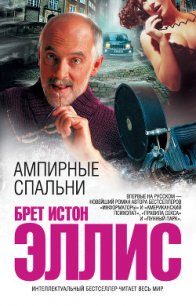Ice Blues - Stevenson Richard (читать книги бесплатно полностью без регистрации TXT) 📗
More empty static. Then: "Just a minute, please." The tone was hesitant but not hostile. The static clicked off. I checked my watch and it was nearly three minutes before the voice returned. "Joan says it's all right for you to come up. Just for a few minutes." The door buzzed open.
I took the elevator to the fifth floor and followed a carpeted high-ceilinged corridor to 5-H, where the door stood open and a woman too young to be Jack Lenihan's mother extended her hand and said, "I'm Gail Tesney, a friend of Joan's. Please come in."
I guessed her age to be forty-one or — two. She was tall and slender in white shorts and a red halter, with small breasts and the type of lithe but firm musculature that suggested her tan came from regular tennis and not from lying by the pool with the latest Cosmo. Her black hair was lustrous even in the half-light and I felt a faint stirring, a kind of nostalgia for something that had never been more than an enforced experiment in social conditioning with me, a vestigial twitch. She had a wide mouth, lively and slightly asym-metrical black eyes, and she looked relieved to see me, as if a burden she had been under finally was going to be shared.
"Sit down, please. Joan worked eleven to seven last night, but she hasn't been sleeping well lately and she's been up for half an hour. This past week has been very hard on her. I'm sure you understand that."
"You mean the past three days, don't you? Mrs. Lenihan learned of Jack's death on Wednesday and today is Friday. Or had there been other bad news too?"
A good bit of the warmth went out of her smile. She said; "Perhaps you and Joan should talk this out."
The room was bright and comfortable in the California way, with white walls and a low orange-and-blue couch, bamboo shades on the ceramic lamps, an assortment of current Book-of-the-Month Club fiction on rosewood shelving and a good stereo setup with an Oscar Peterson LP propped in front of one speaker. An archway on the right led into a formal dining room with a glass-topped steel-tube table and a blond wood sideboard, beside which were stacked five suitcases of identical size, color and design, and which looked new.
Gail Tesney saw me catch sight of the suitcases as she turned toward a doorway leading to the other end of the apartment. She did a quick double take but said nothing and passed out of sight as I seated myself on the couch. The American Journal of Nursing on the end table was addressed to Ms. Gail Tesney, Apartment 5-H, 714 North Scotsmont, which was the apartment I was in.
Muffled voices came from behind a closed door. After several minutes of this I heard a door open-but not close- and Gail Tesney returned. She sat looking tense on a chair facing me and said, "Joan is lying down. She's really not feeling up to talking to anyone about Jack. I'm sorry. I really am. I appreciate that you've come all the way from Albany, and you're disappointed. But-what can I say? I hope you'll understand. Is there some message I can give Joan?"
I said, "Where's the money?"
Her mouth snapped shut and her black eyes flashed, but it wasn't all anger.
She seemed frustrated and unable to make up her mind about something. It was also evident that
I was not the sole cause of Gail Tesney's unsettled conflicting emotions.
Working hard not to glance in the direction of the dining room, she said,
"What money are you referring to, Mr. Strachey?"
I laid it all out for her-them. How Jack's body had been left in my car; the menacing calls from Hankie-mouth and his assumption that I had the money; my tracing Jack's visits to Joan Lenihan in October and again the weekend before he died; Jack's negotiations with the Albany pols; the letter from Jack asking my help and the arrival of five suitcases full of newspapers with Joan Lenihan's return address on them.
I said, "My aim is to recover the two and a half million, deduct a relatively modest sum to cover my fee and expenses as per Jack's instructions, and then carry out his project-provided, of course, that I can verify to my satisfaction that the money was legitimately obtained in the first place.
Who is this Al Piatek anyway?"
Tesney sat poised on the edge of her chair looking stricken throughout my monologue. When I'd finished, she just stared at me. Finally, she said, "I am going to tell you something in confidence."
"All right."
"This is not to be repeated in Albany."
"Is it illegal?"
"Not in California anymore. Texas, I think."
"Then as far as I'm concerned, mum's the word."
"You're gay, aren't you? Jack mentioned that."
"Yes."
"Then you'll understand. Joan and I are lovers."
"I thought you might be. But why the secrecy? This is West Hollywood, where the city hall probably has a statue of Sappho on the roof. Sappho and Montgomery Clift with raised fists."
She wanted to smile but couldn't quite. "Joan and I are in the medical profession, which is not as consistently enlightened as you might think it is, even in California. There are certain administrators closeted dykes themselves in two cases-who would make our lives a lot more difficult if we were as open as we'd like to be. Nothing we could sue over, but a lot of petty meannesses we would prefer to avoid. We saw it happen to another couple once who were so brazen as to kiss each other good-bye one morning in the hospital parking lot."
"I understand that."
"But I am mainly talking about Albany. Joan has her own reasons for not wanting it known that she's a lesbian, and although I don't agree with her that it should matter anymore, I do respect her wishes absolutely. I am asking- insisting-that you do the same."
"I will. But what has that got to do with the problem we're all facing here?"
"You just said it, Mr. Strachey. The problem we're all dealing with here. I want you to understand that any problem of Joan's is my problem too. In fact, Joan wanted to keep me out of this. And I agree that there are some things that each of us has to handle on our own. But this is not one of them. It's too big."
"I agree. Murder is an event that has to command everybody's full attention."
She blanched, then opened her mouth to speak. No words came out and her chin trembled.
I said, "Who do you and Joan think killed Jack?"
"Why-why, one of those politicians. Isn't that obvious? Joan has told me all about what Albany politicians are like. And the horror of it is, they'll probably get away with it. The police will cover it up. It's sickening."
"And Joan is prepared to let that happen by not telling them what she knows?"
With a puzzled shake of the head, she said, "I really don't understand her thinking about that. I just can't get it into my head.
She says she simply doesn't want to have anything to do with Albany-that nothing but disaster could ever come of it. Yet-oh, I don't know. I wish I could understand. I'm trying to understand."
Here was some serious strain on a relationship that I guessed was unaccustomed to it. I said, "Please tell me about Al Piatek."
A sound came from the hallway and we both looked up as Joan Lenihan entered the room. She calmly leaned down and kissed Gail on the cheek, squeezed her hand, then sat on the other end of the couch and gazed at me with pained, resentful eyes.
"You did not have to do this," she said. "None of it. I read the letter Jack wrote to you. You could have turned it over to the police and left Albany until the whole thing blew over. But here you are, aren't you? Big as life and twice as persistent." She slipped a cigarette from the pack on the end table and lit it. "Jack was a true Lenihan in some ways-a brooder, sometimes vindictive, often a little too footloose and fancy-free for his own good. But he was always a superb judge of character."




